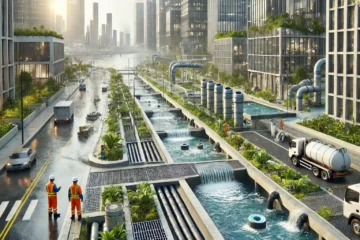The Role of HVAC Systems in Energy Efficiency
Introduction
Heating, Ventilation, and Air Conditioning (HVAC) systems are essential for maintaining comfortable indoor environments. However, 1 they can also be significant energy consumers. By understanding the factors that impact energy efficiency and implementing strategies to optimize HVAC systems, building owners and operators can reduce energy consumption, lower operating costs, and minimize their environmental footprint.
Key Factors Affecting HVAC Energy Efficiency
- System Design and Installation:
- Proper Sizing: An HVAC system that is too large or too small will not operate efficiently.
- Ductwork Design: A well-designed ductwork system minimizes air leakage and pressure loss.
- Quality Installation: Proper installation ensures optimal performance and longevity.
- Equipment Efficiency:
- SEER and HSPF Ratings: Higher Seasonal Energy Efficiency Ratio (SEER) and Heating Seasonal Performance Factor (HSPF) ratings indicate more efficient equipment.
- Variable-Speed Technology: Variable-speed equipment can adjust its output to match the specific needs of the building, reducing energy consumption.
- Building Envelope:
- Insulation: Proper insulation helps maintain indoor temperatures, reducing the load on the HVAC system.
- Air Sealing: Sealing air leaks can prevent conditioned air from escaping and improve energy efficiency.
- Control Systems:
- Programmable Thermostats: These thermostats allow for precise temperature control, reducing energy consumption during unoccupied hours.
- Smart Thermostats: Smart thermostats can learn occupant behavior and adjust settings accordingly, optimizing energy use.
- Maintenance and Operation:
- Regular Maintenance: Routine maintenance, such as filter cleaning and equipment calibration, ensures optimal performance.
- Proper Operation: Training building occupants on proper HVAC usage can significantly impact energy consumption.
Strategies for Improving HVAC Energy Efficiency
- Energy-Efficient Equipment: Upgrade to high-efficiency HVAC equipment with advanced technologies.
- Duct Sealing and Insulation: Seal ductwork to prevent air leaks and insulate ducts to reduce heat loss or gain.
- Zone Control: Implement zone control systems to heat or cool specific areas of a building as needed.
- High-Efficiency Filters: Use high-efficiency filters to improve air quality and reduce the load on the HVAC system.
- Regular Maintenance: Schedule regular maintenance to keep equipment running efficiently.
- Energy-Efficient Lighting: Upgrade to energy-efficient lighting to reduce overall building energy consumption.
- Building Automation Systems: Utilize building automation systems to optimize HVAC system performance based on real-time data.
- Natural Ventilation: Incorporate natural ventilation strategies to reduce the need for mechanical cooling.
- Renewable Energy Integration: Consider integrating renewable energy sources, such as solar power, to offset energy consumption.
Conclusion
By understanding the factors that influence HVAC energy efficiency and implementing effective strategies, building owners and operators can significantly reduce energy costs, improve indoor comfort, and contribute to a more sustainable future. By prioritizing energy efficiency in HVAC system design, operation, and maintenance, we can create more sustainable and environmentally friendly buildings.


